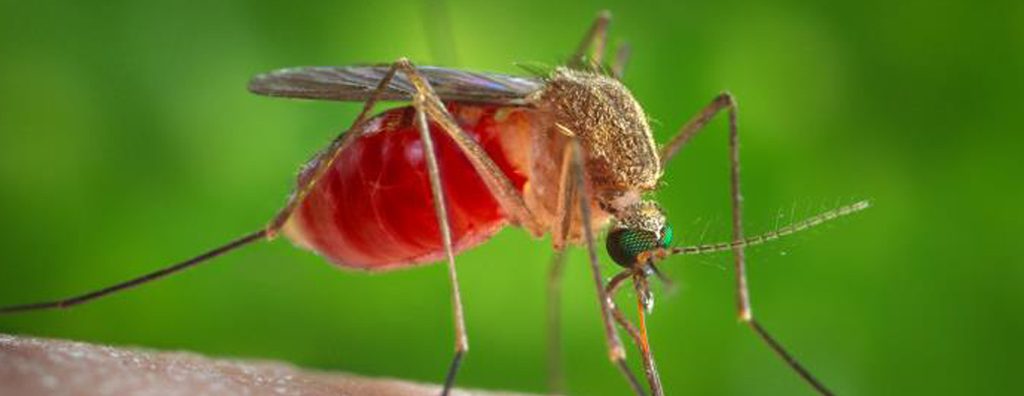Viral Lessons: What Paralysis Taught Me About Preparedness and Response
Posted on by Sometime in mid-August of 2010, I was bitten by a mosquito here in Decatur, Georgia. Normally, that’s not something worth mentioning, but in this instance the mosquito that bit me was carrying a virus, and that bite changed my life.
Sometime in mid-August of 2010, I was bitten by a mosquito here in Decatur, Georgia. Normally, that’s not something worth mentioning, but in this instance the mosquito that bit me was carrying a virus, and that bite changed my life.
The mosquito that bit me was carrying West Nile virus (WNV). Within a few days I was diagnosed with WNV poliomyelitis—a polio-like syndrome that’s caused by severe swelling in the central nervous system. It paralyzed me from the waist down.
It was touch and go there for a while. I spent twelve weeks–five of those on a ventilator—in three different hospitals. My final stop was Atlanta’s Shepherd Center, where they specialize in rehabilitating patients with spinal cord and traumatic brain injuries.
West Nile: What are the Chances?
Most people infected with WNV are none the wiser. CDC estimates that 8 out of 10 people with WNV do not develop any symptoms. [i] That’s an 8 in 10 chance that you won’t get sick at all if you are infected.
About 1 in 5 people who are infected come down with a fever and other symptoms, such as headache, body aches, joint pains, vomiting, diarrhea, or rash, that they fully recover from.
Only a fraction of a fraction of a fraction of people infected with WNV get very sick. About 1 in 150 people experience severe, neurological illnesses, which typically manifests as meningitis inflammation of the membranes that surround the brain and spinal cord), encephalitis (inflammation of the brain), or acute flaccid paralysis (in my case, weakness of the muscles that help me breathe).[ii] That’s a little over half of one percent—chance that you’ll get as sick as I did.
Happy Halloween
The Shepherd Center’s holistic approach to disabled patient care involves teaching new wheelchair users how to be happy, have fun, and find happiness in what they have! In practice, that meant parading through the hallways for Halloween.
I loved Halloween growing up, but I wasn’t in the mood. If it was possible, hearing the plans for parade made me even less enthusiastic.
The therapists on my floor decided on a Wizard of Oz theme for our wing, and that I would play the Scarecrow. I went along with it, begrudgingly at first. I let them stuff my shirt with hay and plop a floppy hat on my head. The costume felt like an itchy, sweaty form of torture.
I see now that the parade was a distraction from my disability. Laughing with and even at one another are important parts of life. When you’re newly disabled, it helps to be shown that it’s still possible to have a good time even if you’re in a wheelchair.
What I’m Trying to Say is …

What’s the point of my story? It’s not to make you feel bad for me or to scare you into wearing insect repellent; although, that wouldn’t be such a bad outcome. The point that I’m trying to make is twofold. Wearing insect repellent could have prevented me from catching West Nile virus, but the fact that I almost died from it was just as much of a fluke as anything else.
When I share my story with people, they often recoil in shock or say, “I’m so sorry that this happened to you.” My response is always the same. I tell them not to be sorry. My story is one of survival rather than loss. My experience taught me to be more vigilant in terms of preparedness, but also to be resourceful in my mental and emotional responses. Life is really is whatever we chose to make it. Do your best. Try to be prepared for the unexpected and make the most of what you have at your disposal.
Protect Yourself from Mosquitoes: Fight the Bite!

The best way to avoid getting any mosquito-borne virus is to avoid getting bitten by mosquitoes. Prepare your health to “Fight the Bite” after a major disaster, such as a hurricane, and throughout mosquito season. Here are some steps you can take to prepare and protect your health:
- In addition to personal health products such as water purification tablets, hand sanitizer and sunscreen, include an Environmental Protection Agency (EPA)-registered insect repellent in your emergency supplies kit.
- Research your EPA-registered insect repellent options. Find an insect repellent that meets your needs and contains one of the following active ingredients: DEET, picaridin, IR3535, oil of lemon eucalyptus, para-menthane-diol, or 2-undecanone.
- Wear long-sleeved shirts and pants. Treat your clothing and gear, including boots, socks, and pants, with 0.5% permethrin.
- Remove standing water from around the house. Empty, turn over, cover, or throw out any items that hold water like tires, buckets, planters, toys, pools, birdbaths, flower pots, or trash containers once a week.
Thanks in advance for your questions and comments on this Public Health Matters post. Please note that the CDC does not give personal medical advice. If you are concerned you have a disease or condition, talk to your doctor.
Have a question for CDC? CDC-INFO (http://www.cdc.gov/cdc-info/index.html) offers live agents by phone and email to help you find the latest, reliable, and science-based health information on more than 750 health topics.
[i] https://www.cdc.gov/westnile/symptoms/index.html
[ii] https://www.cdc.gov/westnile/symptoms/index.html
Posted on by

